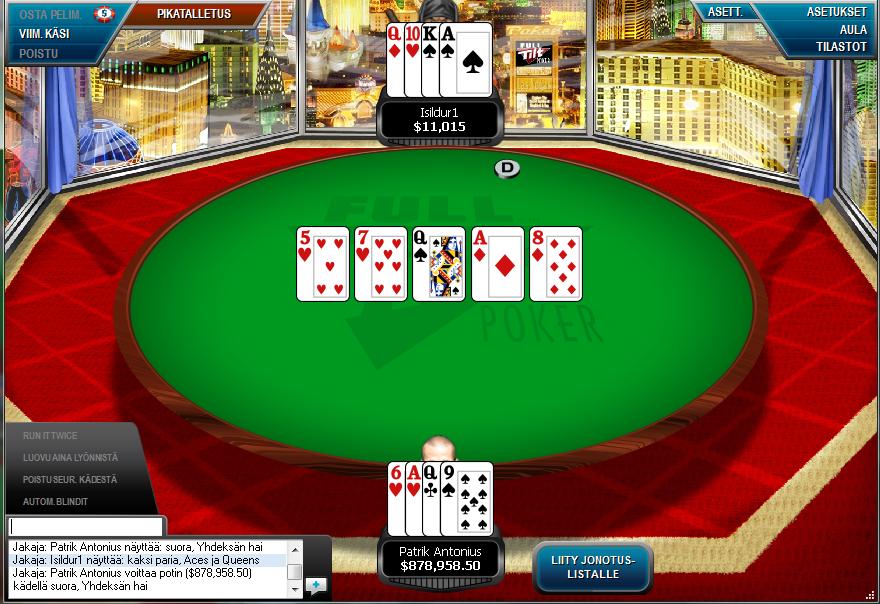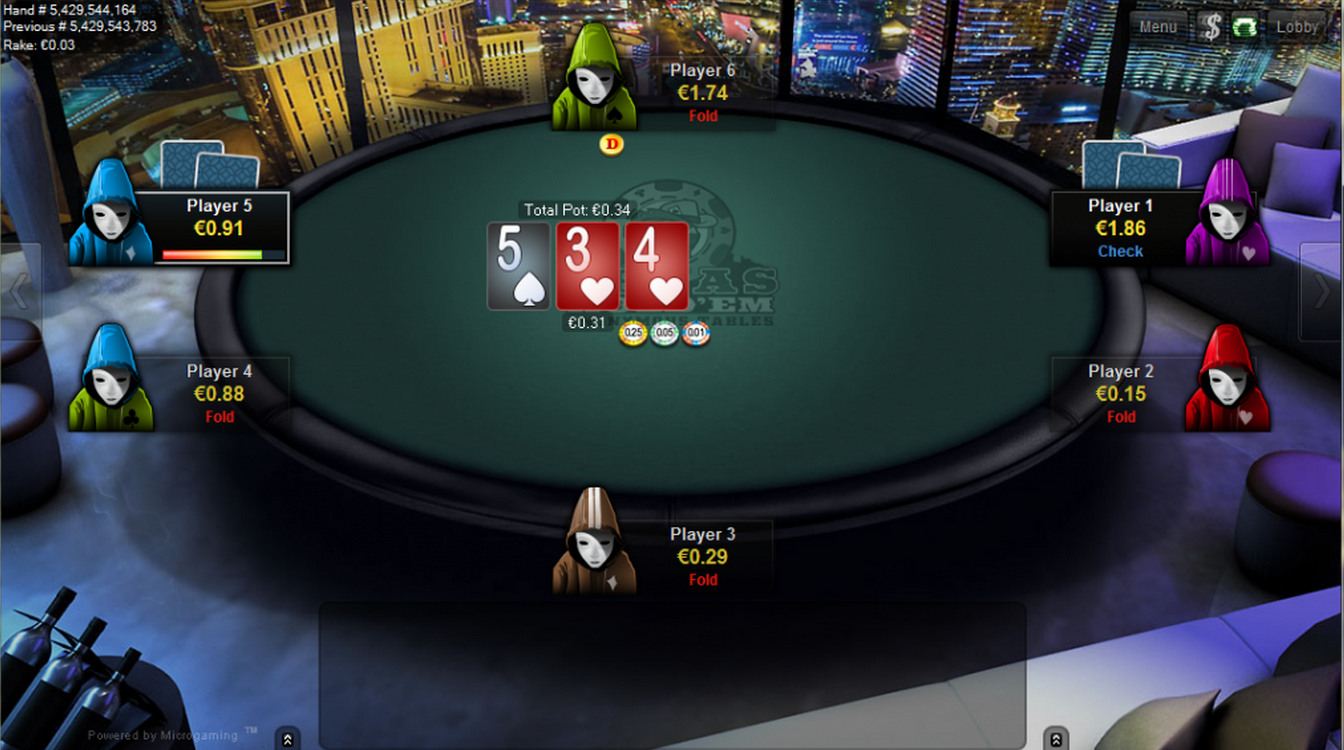Below - Isildur1 would have loved the functionality to change his screenname!

A few months ago Microgaming Poker Network joined their old partner Unibet in offering players the option to periodically (every 30 days or 1000 hands) change their screen name. This feature seems to reflect the industry trend of trying to make the poker ecosystem healthier and more friendly to recreational players. While it's unclear how effective name changes will be when it comes to reinvigorating poker, they will certainly have a considerable impact on the games which is something worth discussing.
The Case for Recreational Players
The existence of rake makes constant new deposits necessary in order to preserve the entire poker ecosystem and because regular players usually aren't the source of those deposits protecting the recreational players and making the game as attractive and enjoyable as possible to them seems like the way to go. Poker is extremely competitive, and the advent of technology made it possible for the game to advance at a much quicker pace than ever before. Players clock exorbitant amounts of hands every minute and are able to analyze them exhaustively using the cutting edge poker software. Your average Joe with a full-time job who enjoys playing an hour or two of poker after work can't hope to compete in that environment. Sure, the existence of variance coupled with mindset problems and inflated ego might give him the illusion that he's not entirely hopeless but a standard deviation isn't infinite and that illusion will sooner or later be destroyed. While poker can be very entertaining it's certainly not the only (and arguably not the greatest) source of entertainment out there, therefore, a recreational player that get's quickly demolished by seasoned sharks will most likely choose to do something else with his free time.
Below - Microgaming anonymous tables

This is where features like screen name changes come in. By allowing players to switch their table identity poker rooms hope to cripple the tracking software without confusing the players. Other solutions like anonymous tables might be too complicated or feel too foreign to some casual poker fans. Screen name changes manage to impose some limitations on tracking software users (effectively capping the sample size at 1k hands) without drastically altering the core of the experience.
Problems with Screen Name Changes
While the intention to protect the recreational players is noble, it's actually unclear how effective screen name changes are at achieving that. If you're a regular player and you're not using data mined hands, you're probably aware how rare it is to have more than 1k hands in your database on any given recreational player. Regulars are used to playing against weaker opponents using far less than that and if you're a seasoned player you don't need much more than two orbits to realize who's your target at the table.
Below - Russ Hamilton. Famous for the 'Superuser' scandal on UltimateBet, where he played online knowing the exact holecards of his opponents.

On of the possible problems with the screen name changes is the fact that collusion becomes much harder to track and prove. We had numerous examples in the past of poker players uncovering schemes that went unnoticed by poker rooms (even those with fairly sophisticated and large security departments) just because they had access to large quantities of data mined hands that could confirm or deny their suspicions. Without the access to those large quantities of hands, collusion might become much harder to expose and punish.
Adjustments
Will screen name changes end up being effective? Only time will tell. In the meantime, it might be a good idea to focus on our EV which is somewhat easier to quantify and will certainly be affected by the new Microgaming name change policy.
Here're a few adjustments that you should consider making in order to preserve or even increase your win rate despite the changes:
- Use this new feature! The less info your opponents have on you the better. Make a habit of changing your screen name every 1000 hands and stick with it!
- Punish people who aren't using the new feature. This is simple, if you have more than 1k hands on your opponent in the HUD he's most likely not the kind of player that seeks every bit of edge he can get and, consequently, it might be a good idea to exploit the inherent information advantage that you gain because of that.
- Re-structure the way you're making notes. Since there's a real possibility that your notes on a certain player may evaporate after just 1k hands, long, frequent, elaborate notes that used to work well for you in the past might become a very inefficient use of your time. Take that into consideration and start writing down shorter, more meaningful information instead.
- Consider dropping color coding. Just like the notes your color labels can also disappear after just 1k hand so it might be a good idea to greatly simplify your color-coding system. Instead of using five different colors consider using just two for passive/aggressive, good/bad, regular/recreational players etc.
- Give anonymous tables a try. You might as well do that since now regular tables are more similar to anonymous ones than ever before. You might find that you're willing to sacrifice the HUD in order to play the games with higher recreational to regular player ratio.
Below - Phil Ivey has never used a HUD. 100% feel player.

- Learn to play without a HUD. If screen name changes are the sign of things to comes (and looking at policy changes across the entire poker market it's not unreasonable to assume so) it might be a good idea to reserve one or two days a week for a HUD-less poker session. That way you won't have a hard time adjusting if tracking software someday becomes a thing of the past. Besides, learning to play without a HUD might actually contribute to improving your poker skill by making you more sensitive to the actual hand-to-hand table dynamics instead of the numbers representing them.
- Instead of working on your strategy for certain players, work on your strategy vs. average opponent and/or GTO. There's no point in spending two or three hours analyzing your NL50 nemesis if his table identity can change literally the same day. Focus on improving your exploitative strategy vs. the entire player population at your limit. It might also be a good idea to start introducing some GTO elements into your game.
- Playing poker is about constantly adjusting to the new environment. It's unclear whether screen name changes end up being good for the entire poker ecosystem, but it's certain that they will affect it and your job as a poker player is to be prepared for that. Hopefully, you'll be able to fine-tune your approach with the tips provided above.
More Top Rated Content
Articles
- Limitations of a HUD
- Zoom Poker Strategy Guide
- Protect Against Malware and Hackers - Keep Your Poker Account Safe
Coaching Videos


